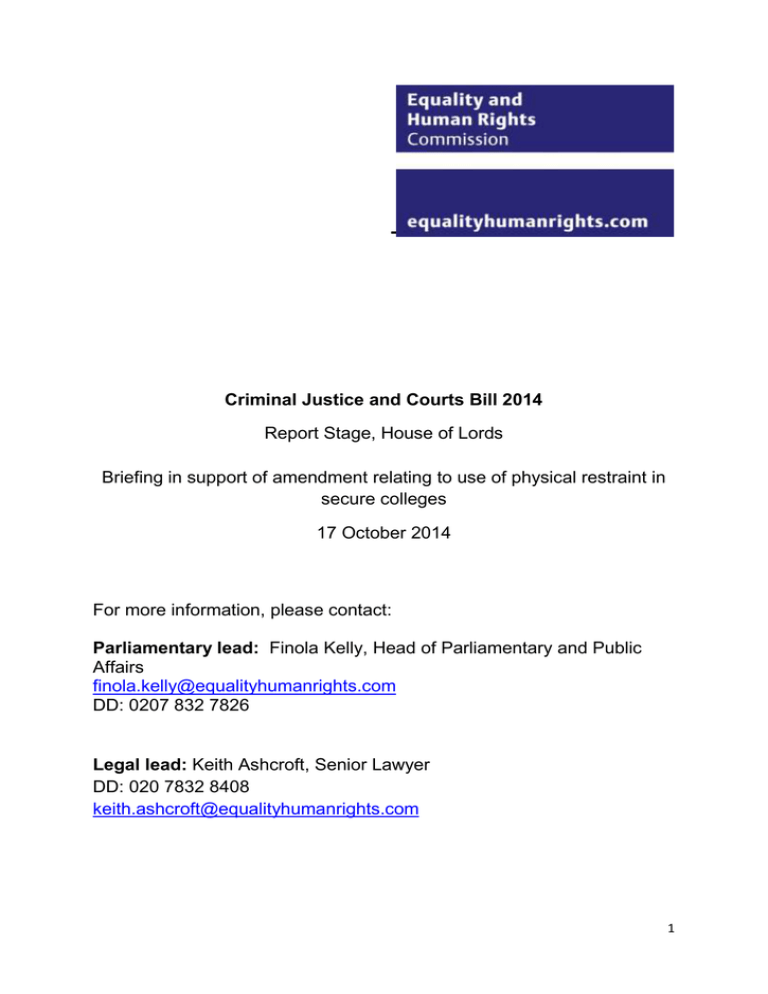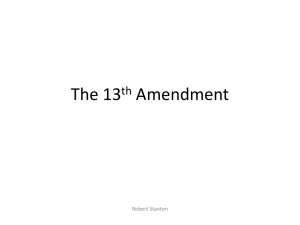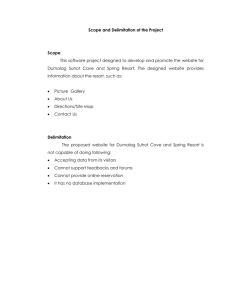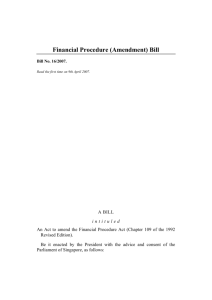Criminal Justice and Courts Bill 2014: Report Stage, House of Lords
advertisement

- Criminal Justice and Courts Bill 2014 Report Stage, House of Lords Briefing in support of amendment relating to use of physical restraint in secure colleges 17 October 2014 For more information, please contact: Parliamentary lead: Finola Kelly, Head of Parliamentary and Public Affairs finola.kelly@equalityhumanrights.com DD: 0207 832 7826 Legal lead: Keith Ashcroft, Senior Lawyer DD: 020 7832 8408 keith.ashcroft@equalityhumanrights.com 1 1. Introduction This briefing supports an amendment to provisions in the Criminal Justice and Courts Bill on the use of physical restraint in secure colleges (Schedule 6), with some reservations. Schedule 6 Support Amendment 121 Explanation In our briefing in support of amendments relating to secure colleges dated 14 July 2014 the Commission recommended that Schedule 6 of the Bill should be amended to limit the use of physical force in secure colleges to: (1) prevent injury to the child or others, but also (2) to prevent escape and (3) to prevent the commission of an unlawful act. In addition that Schedule 6 should be amended to require force to be used only as a last resort. The current wording of Schedule 6 permits secure college custody officers to use reasonable force to ‘maintain good order and discipline’ if authorised to do so by secure college rules. In its briefing the Commission expressed the view that the authorisation of use of force against children for this broad purpose is incompatible with Articles 3 and 8 of the European Convention on Human Rights. The effect of amendment 121 would be to allow secure college rules to authorise the use of reasonable force on children solely for the purpose of preventing harm to the child or others and only as a last resort and with the minimum force necessary. The UN Committee on the Rights of the Child and the UN Committee on Torture have recommended that restraint against children should be a last resort and exclusively to prevent harm to the child or others. The Commission’s view is that there are other, limited circumstances in which reasonable force may be used as a last resort against children and young people. Those circumstances are (1) to prevent escape from lawful custody and (2) to prevent the commission or attempted commission of other unlawful acts. With this qualification, the Commission supports the amendment to be moved on Report. 2 Lord Ramsbotham’s amendments to Schedule 6: 121 Page 97, line 28, leave out paragraph 10 and insert— “10 Secure college rules may only authorise the use of reasonable force on children— (a) as a last resort; (b) for the purposes of preventing harm to the child or others; and (c) to the extent that the minimum force necessary should be used.” 2. About the Equality and Human Rights Commission The Equality and Human Rights Commission is a statutory body established under the Equality Act 2006. It is an independent body responsible for promoting and enforcing the laws that protect fairness, dignity and respect. It contributes to making and keeping Britain a fair society in which everyone, regardless of background, has an equal opportunity to fulfil their potential. The Commission enforces equality legislation on age, disability, gender reassignment, marriage and civil partnership, pregnancy and maternity, race, religion or belief, sex and sexual orientation. It encourages compliance with the Human Rights Act 1998 and is accredited by the UN as an ‘A status’ National Human Rights Institution. Find out more about the Commission’s work at: www.equalityhumanrights.com 3


